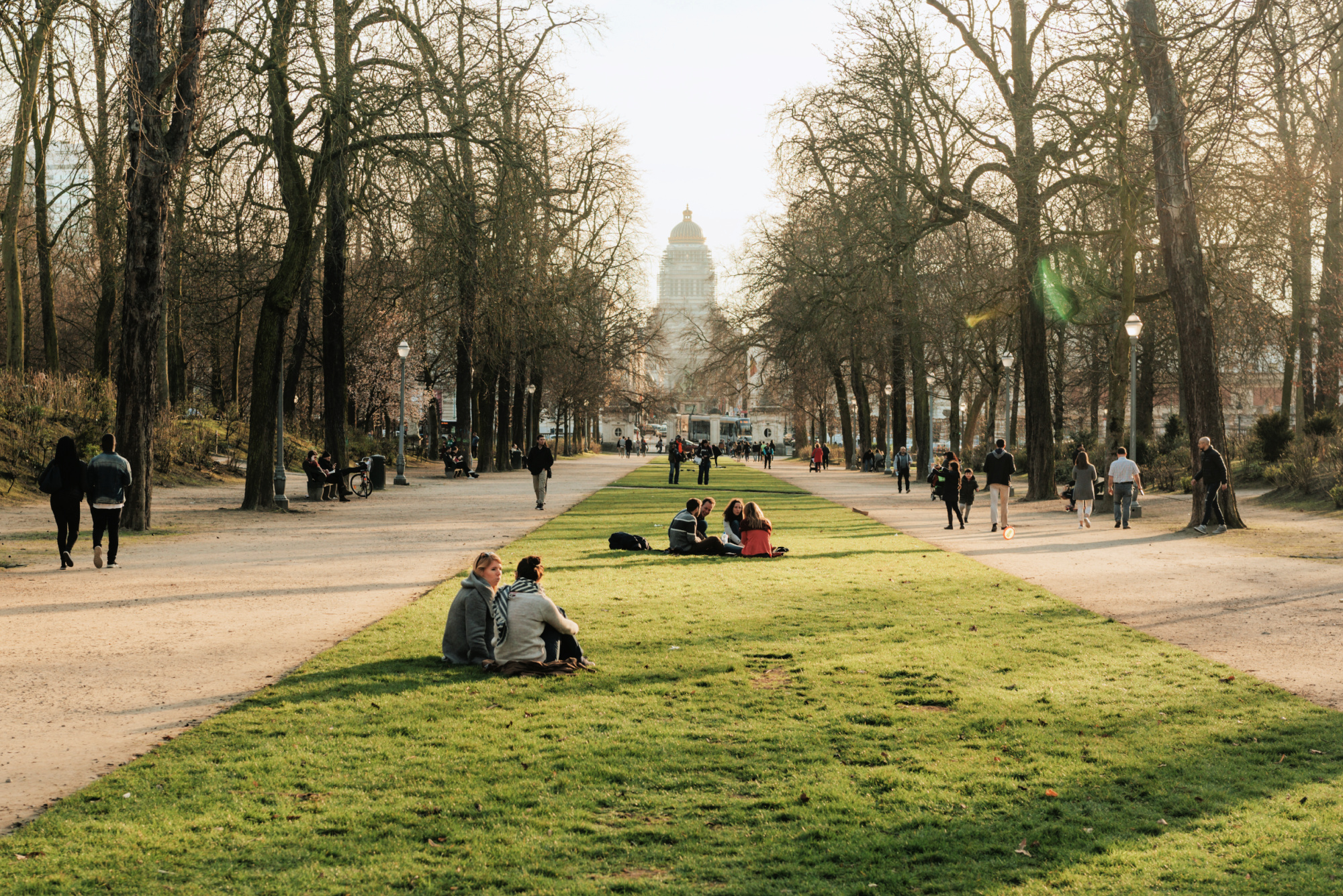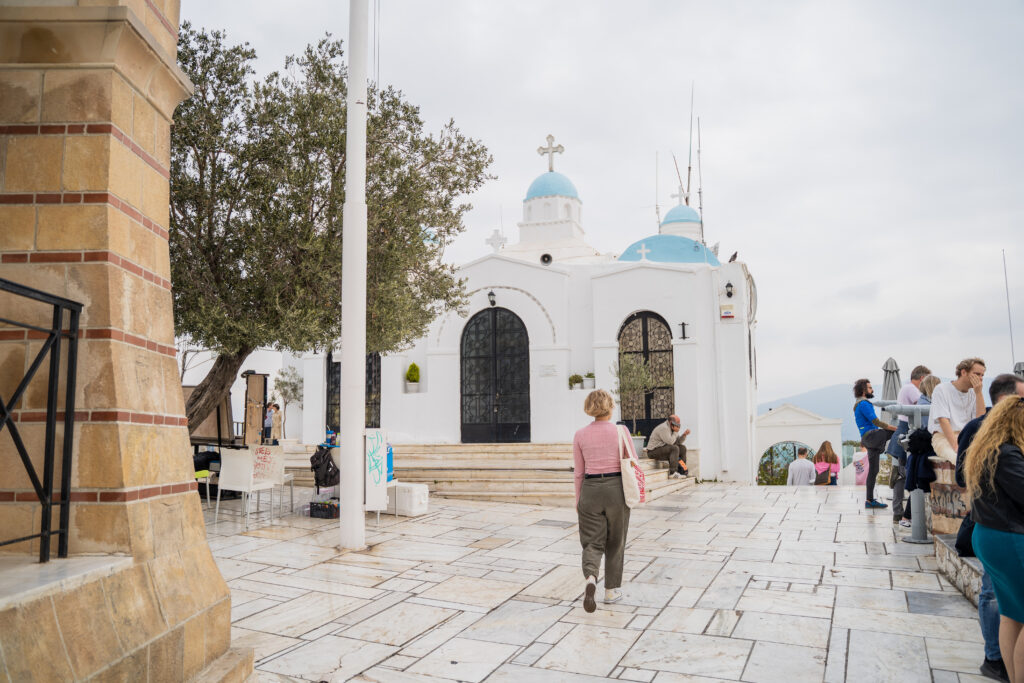How Understanding Lent and Ramadan Can Build Relationships

In anticipation of the celebration of Christ’s resurrection, believers around the world observe the forty-day period preceding Easter Sunday: Lent. While some of us might give up coffee or sweets during this season, others might be unsure about the purpose of Lent or its significance in our Christian walk.
These last two years, Lent also overlaps with Ramadan, a thirty-day period of fasting commemorating the revelation of the Quran to Muhammad.
For those who didn’t grow up in a liturgical church and have never observed Lent, we might wonder about this practice and how it differs from Ramadan. And as more refugees and migrants move into the neighbourhood, how can we use conversations about Lent and Ramadan to share Jesus with our Muslim friends and coworkers?

Stefan Henger, executive director of Greater Europe Mission Germany and leader of the Muslim Ministry Impact Zone, describes Lent as “a time before Easter where people are leaving something out of their diet so they can focus more on spiritual practices.”
Understanding the Distinction Between Lent and Ramadan
Traditionally, Christians have refrained from eating meat during Lent, but today many Christians choose to fast from any food or practice that fosters spiritual apathy. While there can be a temptation toward legalism, fasting in the Christian tradition is not about gaining favour with God but rather, as Stefan said, “a way of putting your whole focus on God.”
During Ramadan, Muslims cannot eat food or drink water from sunup to sunset, even when Ramadan falls in the summertime. And as Stefan observed, very conservative Muslims will even spit out their saliva in the street so as not to swallow it.
As one of the five pillars of Islam, Ramadan is obligatory for all Muslims, one of the ways Muslims try to gain favour from God. One Muslim student also explained to me that another purpose of Ramadan is to remind Muslims of the less fortunate who do not have food, thus calling them to thankfulness. Many Muslims use the money saved from food during Ramadan to give back to those less fortunate—similar to one of the key reasons for Christian fasting.

Fasting Together
Beverly Hawkins, who has served in GEM for thirteen years with her husband and currently lives in France, once decided to practice Ramadan alongside her young Muslim boss while working at a donut shop during an interval in the US.
During their conversations about faith, Beverly’s Muslim boss would criticise Christians for not fasting, even though Scripture clearly calls us to this discipline. Beverly also heard many of her Christian friends criticizing Muslims, saying that Ramadan isn’t a serious fast because “all they do is feast after sundown.”
These mutual accusations pushed Beverly to think more seriously about Christian and Muslim fasting. “I thought a lot about it,” Beverly said to me, “and I began to ask myself what it would look like for me as a believer to practice a fast like Ramadan.”
When Beverly told her boss she wanted to try Ramadan with him one year, “he was shocked that someone would step into his world in that way.”
The experience taught Beverly a great deal about the spiritual practice of fasting—what it should and shouldn’t be. Her boss would wake up at four in the morning just to drink coffee and eat something before the sun came up. Unable to drink during the hot summer days, Beverly noted, he would become extremely irritable.

On the days when he was especially gruff, Beverly would ask him gently, “How is Ramadan working for you? Do you feel closer to God?”
As Beverly’s story illustrates, Muslims’ belief that Christians don’t fast is a fitting criticism of many Christians’ spiritual apathy toward this important discipline.
However, when taken to an extreme, religious practices such as fasting can become a desperate attempt to win God’s favor.
Spiritual Practices Build True Community
So, how can the observance of a Christian practice such as Lent truly draw us closer to God instead of becoming a path to legalism?
Stefan suggests two ways we can incorporate Lent into our practice of self-discipline and discipleship. First, change what we fast each year with the aim of helping us focus our attention on God. Second, choose to practice Lent in community instead of in isolation.
If you fast, Stefan added, you can share this with Muslims and explain that during Lent, we are preparing for “the most important event of our lives”—when Jesus died for our sins and rose from the grave, making us new.
“Following the liturgical calendar takes us through some natural cycles in our faith,” Beverly reflected. That way we don’t simply stick to themes we like and avoid themes such as suffering and sacrifice, which “we wouldn’t naturally choose to study, reflect on, or practice.”
“The post-Christian world is looking for something that has depth,” Beverly concluded. “A fluffy Christianity that doesn’t deal with the realities of life” isn’t going to be effective. But Lent, which deals with suffering and sacrifice, “contributes to a message that the post-Christian world is interested in hearing. It deals with real life.”
As we look toward Easter, let’s pray for our Muslim friends and neighbours to encounter God through Jesus this Ramadan, with prayer guides and videos available in many languages. And as we build spiritual disciplines such as fasting into our Christian practice, may we seek to be bridge builders between Muslims and Christians to show Christ’s light.
About the author: Kara Barlow served as a GEM intern in Rome, Italy working with migrants. Photos by Dustin Johnson, a Storyteller serving with GEM Teams in Athens, Greece.
